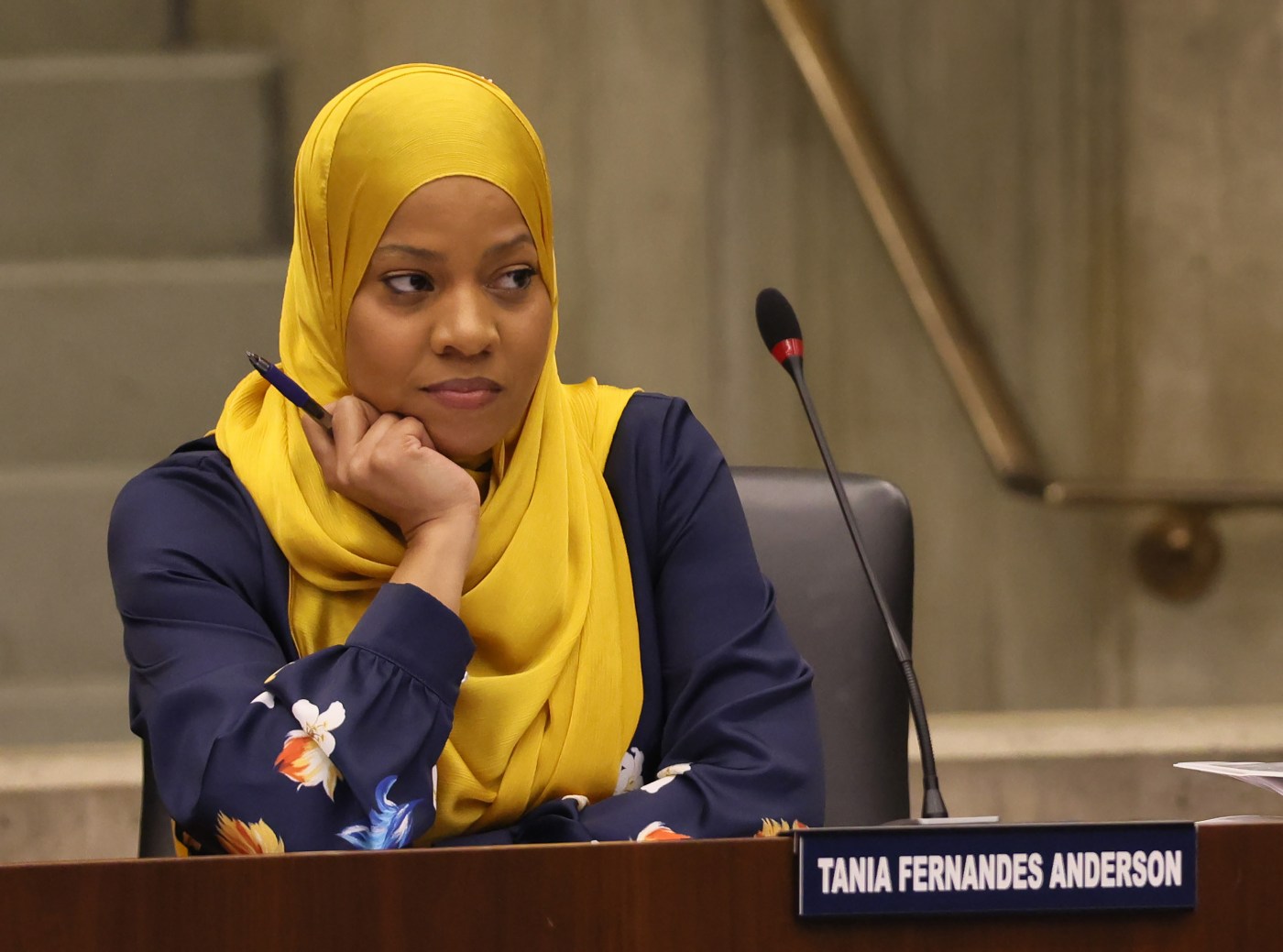
Two Boston city councilors push for special election, ethics committee after Tania Fernandes Anderson plea deal
Two Boston city councilors are putting pressure on their colleagues to swiftly call for a special election and explore ways to create an oversight committee for the body in the aftermath of Councilor Tania Fernandes Anderson’s plea deal.
Councilors Erin Murphy and Ed Flynn have prepared separate filings for next week’s City Council meeting that are reactionary to Fernandes Anderson’s plans to plead guilty to two public corruption charges and resign from her $120,000 post.
Murphy plans to seek approval for a resolution that calls for the “prompt scheduling of a special election to fill the vacancy” that will be created in District 7 when Fernandes Anderson officially leaves the City Council.
“I’m not waiting,” Murphy said in a statement. “The residents of District 7 deserve leadership and a voice at City Hall. I’ve filed a resolution to make sure we’re ready to move swiftly and schedule a special election as soon as the law allows.
“Elected officials are entrusted with representing the public honestly and ethically, not abusing their power for personal gain,” Murphy added. “Such actions erode public trust and perpetuate the damaging belief that our City Council is unworthy of the confidence of those we serve. Boston deserves better.”
The timing of Fernandes Anderson’s resignation, which she has not yet shared, will determine whether the city will have time to hold a special election.
The city charter calls for a special election to fill an open district council seat if there’s more than 180 days before the election.
May 8 would mark 180 days, meaning that the seat could remain vacant until next January if Fernandes Anderson does not resign by that time. The district includes Roxbury, Dorchester, Fenway and part of the South End.
A number of candidates have already lined up to run for the District 7 seat. Murphy says the “prompt scheduling of a special election” is imperative “to ensure that the constituents of District 7 are not left without representation longer than necessary.”
Flynn said the Fernandes Anderson corruption case is another example of why the City Council needs an ethics committee.
“The status quo can’t continue,” Flynn said in a statement to the Herald. “I would almost advocate having a receiver to oversee the body of the City Council. We are damaged and we don’t want to recognize or deal with it.”
His push for an ethics committee, which he proposed in the days that followed Fernandes Anderson’s December 2024 arrest and indictment, was killed by way of an 8-3 Council vote last January.
Councilors who opposed the measure expressed uneasiness with other members having the authority to investigate and take action against their colleagues, by way of sitting on an internal ethics committee.
In light of Fernandes Anderson’s plea deal, Flynn is reviving his push for creation of an ethics committee, but in a different form that would feature a majority external, rather than internal, oversight of the City Council.
He’s filed an “order for a hearing to discuss creation of an oversight committee on compliance and accountability for the Boston City Council.”
Potential membership would include the City Council president, a retired Massachusetts or federal judge, a representative from the Boston Municipal Research Bureau, and Boston residents “that would ensure the Boston City Council is compliant on all rules and ethics matters,” Flynn’s hearing order states.
“The Council pushed back on my previous ethics committee request because their argument against was councilors should not judge councilors,” Flynn said. “Now, under my proposal, that would not be the case.
“All I know is that the longer we wait and do nothing, the more we are damaged as a body and continue to lose credibility throughout the city with Boston residents.”
While the committee proposal is responsive to the Fernandes Anderson case, Flynn’s order also references “a series of ethical and legal lapses by members at the Boston City Council over the last several years.”
Prior to the federal charges, Fernandes Anderson was hit with state ethics and campaign finance violations.
Ex-Councilors Ricardo Arroyo and Kendra Lara became the first incumbents to lose a primary election in Boston in at least four decades after their own lapses, in September 2023.
Councilor Enrique Pepén, who replaced Arroyo on the Council, was hit with a state campaign finance law violation, after winning the election, but before taking office, in November 2023.
Related Articles
Howie Carr: Tania joins DEI Hall of Shame
Battenfeld: Fernandes Anderson needs to go, now
Boston Mayor Wu says federal funding ‘chaos’ could lead to city layoffs, hiring freeze
Disgraced Boston City Councilor Tania Fernandes Anderson hand-picks media interviews after plea deal
Could plea deal get Boston City Councilor Tania Fernandes Anderson deported?
According to a plea agreement filed by federal prosecutors on Tuesday, Fernandes Anderson will plead guilty to two of six public corruption charges that had been lodged against her in a December 2024 federal indictment.
The charges are tied to allegations that she doled out a $13,000 bonus to one of her City Council staff members, also a relative, on the condition that $7,000 be kicked back to her. The exchange was coordinated by text and took place in a City Hall bathroom in June 2023, the federal indictment states.
U.S. Attorney Leah Foley plans to recommend that Fernandes Anderson be sentenced to a year and a day in prison, and ordered to pay $13,000 in restitution, per the terms of the plea agreement.
Fernandes Anderson was removed from all Council committees on Wednesday by Council President Ruthzee Louijeune.


